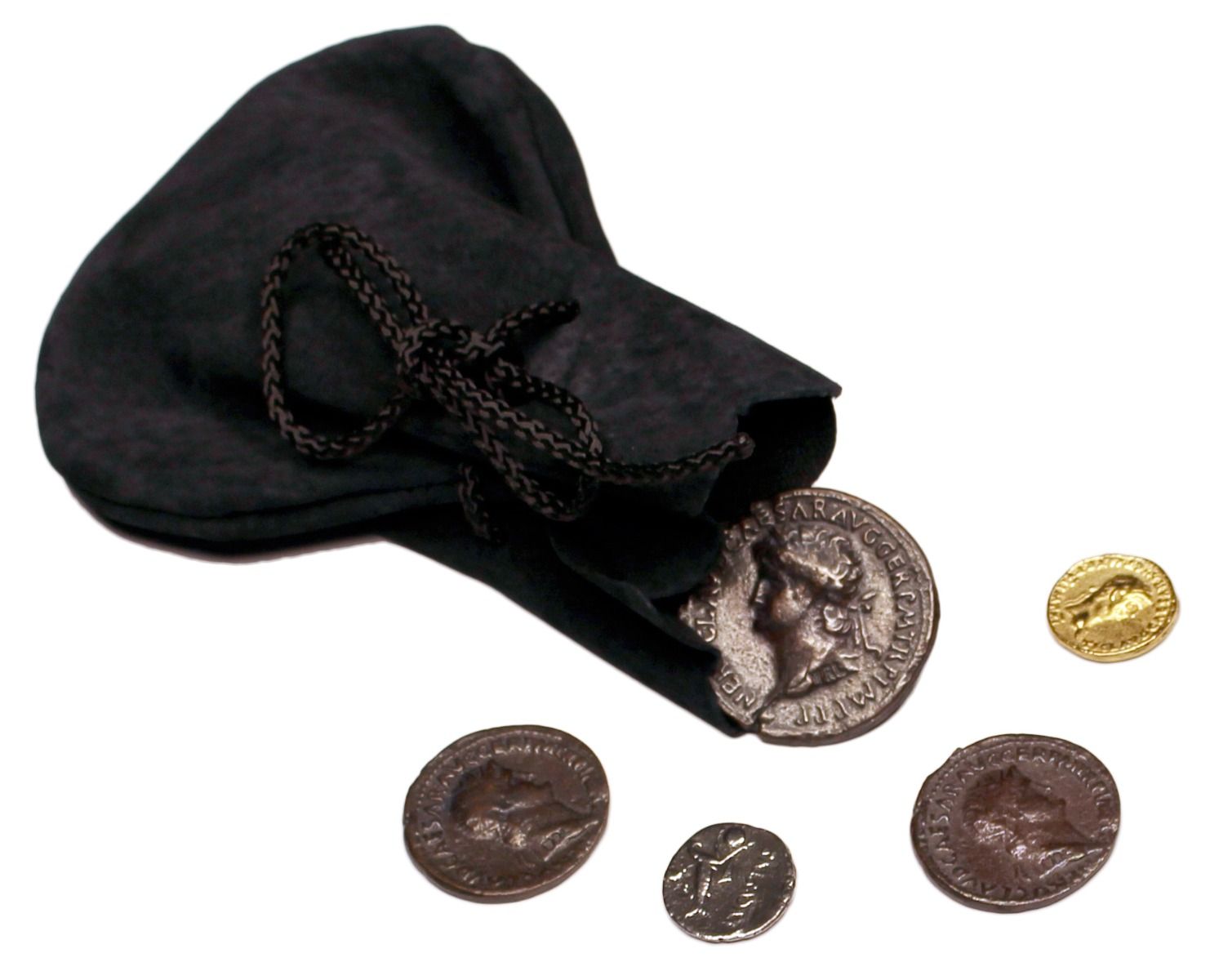Roman purse - replica coins
Roman purse with 5 coins / replica
Pouch made of imitation leather; filled with five Roman coin replicas and a description of the coins as well as information on the Roman coinage system.
Made of lead-free pewter, polished, gilded or patinated.
1 aureus = 25 denarii,
1 Denarius = 25 Sestertii,
1 Sestertius = 2 Dupondii,
1 Dupondius = 2 Ass.
A pig costs 75 denarii (prices handed down for the 1st and 2nd century).
The coins included correspond to the most important denominations of the Roman Imperial period:
AUREUS, original in gold, approx. 8 g.
Obverse: Emperor Claudius (41 - 54 AD), reverse: Triumphal Arch
DENARIUS, original of silver, ca. 4 g
Obverse: Emperor Augustus (27 B.C. - 14 A.D.), reverse: Capricorn, sign of the zodiac of Augustus
SESTERTIUS, original made of brass, ca. 25 g
FS: Emperor Nero (54 - 68 AD), RS: Nero and a soldier on horseback at a military parade (decursio)
DUPONDIUS, original made of brass, ca. 13 g
Obverse: Emperor Nero (54 - 68 AD), reverse: seated goddess Roma
AS, original made of copper, ca. 11 g
VS: Emperor Antoninus Pius (138 - 161 AD), RS: seated Britannia.
"Pecunia non olet!"
Money does not stink
Emperor Vespasian had taken over from his predecessor Nero a state that was almost bankrupt.
Vespasian reorganised the public budgets with great success. His ingenuity in increasing state revenues was great. Among other things, he introduced a tax on public latrines. When his son Titus objected to this, he held some coins from the tax revenue under his nose. from the tax revenues under his nose and asked if the smell bothered him. Titus had to concede that the money did not smell:
Pecunia non olet.
The saying has survived to this day to describe the possession
of money from dubious sources of income.
The public toilets in Paris are still called "Vespasienne" today.
In Italy, too, the public toilets are called "Vespasiani".

